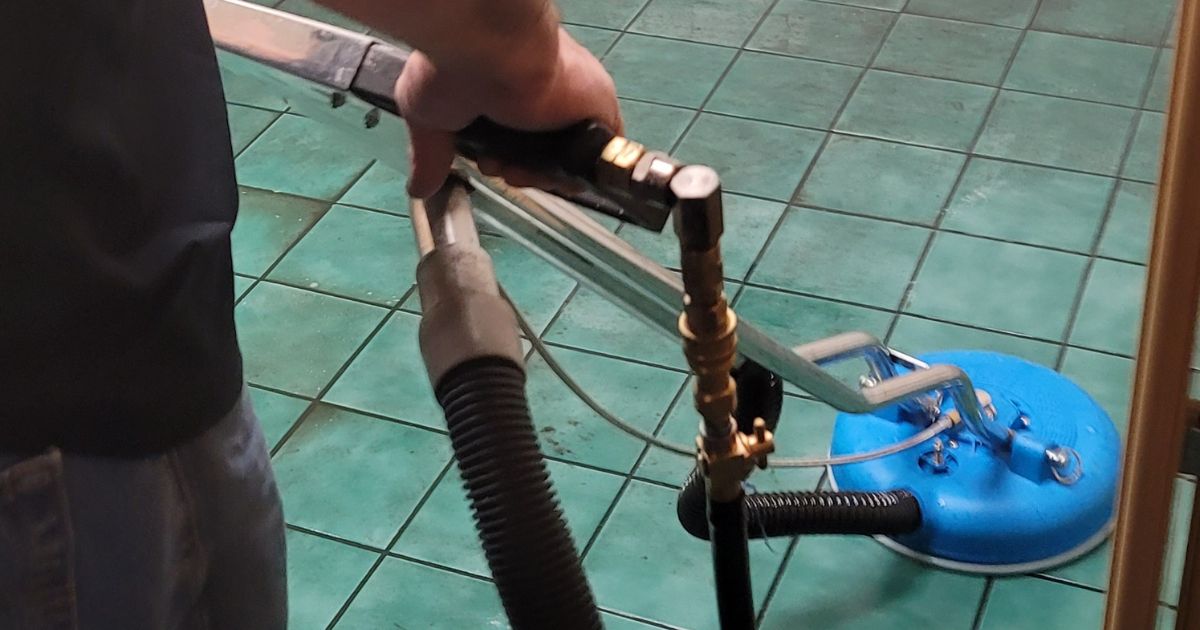Did you know that dirty grout can house up to 1,000 times more bacteria than a toilet seat? Over time, grime and moisture build up in tile and grout, leading to unsightly stains and hidden health risks. Keeping your tiled surfaces truly clean takes more than a quick mop. Understanding the right cleaning methods and tools helps you protect your floors, boost indoor hygiene, and maintain a sparkling, long-lasting finish.
Table of Contents: Tile and Grout Cleaning
Key Takeaways
| Point | Details |
|---|---|
| Importance of Professional Cleaning | Professional tile and grout cleaning uses specialized techniques to achieve deeper cleanliness and longer-lasting results compared to DIY methods. |
| Types of Grout | Understanding different grout types (sanded, unsanded, epoxy, furan) is essential for selecting the right cleaning approach and maintaining tile surfaces effectively. |
| Maintenance Strategies | Regular cleaning and protective sealing are vital for preventing moisture damage, stains, and preserving the aesthetic appeal of tiled surfaces. |
| Cost vs. Benefit | While DIY cleaning may be cost-effective for upkeep, investing in professional services can extend the life of tiles and grout, saving money in the long run. |
What Is Tile And Grout Cleaning?
Tile and grout cleaning is a specialized deep cleaning process designed to restore and maintain the appearance and hygiene of tiled surfaces. According to Clean Master Carpet Cleaning, this process involves using targeted tools and cleaning solutions to eliminate dirt, grime, mold, mildew, and stubborn stains that accumulate in tile surfaces and grout lines.
The primary goal of professional tile and grout cleaning goes beyond standard surface cleaning. As Rapid Pro Clean explains, these services restore the original look of tiled areas while reaching embedded dirt that regular household cleaning methods cannot effectively remove. This means getting into those microscopic pores and crevices where bacteria, mold, and grime tend to hide.
Professional tile and grout cleaning typically involves several key techniques:
- High-pressure steam cleaning
- Specialized alkaline and acidic cleaning solutions
- Professional-grade extraction equipment
- Targeted stain removal treatments
- Optional protective sealing after deep cleaning
Whether in residential kitchens, commercial bathrooms, or industrial spaces, maintaining clean tile and grout is not just about aesthetics but also about creating a healthier, more hygienic environment. By removing accumulated contaminants, these professional cleaning services help extend the life of your tiled surfaces and prevent long-term damage caused by dirt and moisture buildup.
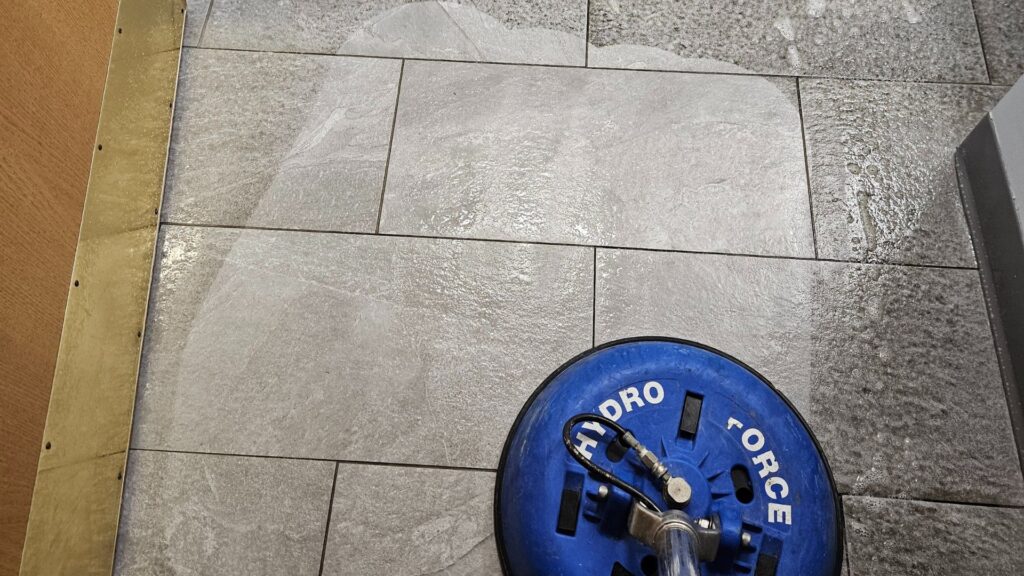
Types Of Tile And Grout Materials
Understanding the different types of tile and grout materials is crucial for selecting the right cleaning approach and maintaining your surfaces effectively. According to Defusco, there are several primary grout types, each with unique characteristics and specific applications in residential and commercial settings.
Arch Toolbox identifies four primary grout categories that professionals and homeowners should be aware of:
- Sanded Grout: Used for wider tile joints (typically 1/8 inch or larger)
- Unsanded Grout: Ideal for narrow joints and delicate tile surfaces
- Epoxy Grout: Highly durable and resistant to stains and moisture
- Furan Grout: Specialized chemical-resistant grout for industrial environments
Each grout type has specific strengths and recommended uses. Sanded grout, for example, contains fine sand particles that provide additional strength and stability for larger tile gaps, making it perfect for floor tiles and heavy-traffic areas. Unsanded grout, conversely, offers a smoother finish and works best with delicate tiles like glass or marble where a more precise, tight application is needed. Epoxy grout stands out for its exceptional durability and resistance to stains, chemicals, and moisture, making it an excellent choice for bathrooms, kitchens, and areas prone to high humidity or frequent cleaning.
The selection of tile and grout materials depends on multiple factors, including the specific location, expected foot traffic, moisture exposure, and aesthetic preferences. Professional assessment can help determine the most suitable grout type for your specific tile installation, ensuring long-lasting beauty and functionality.
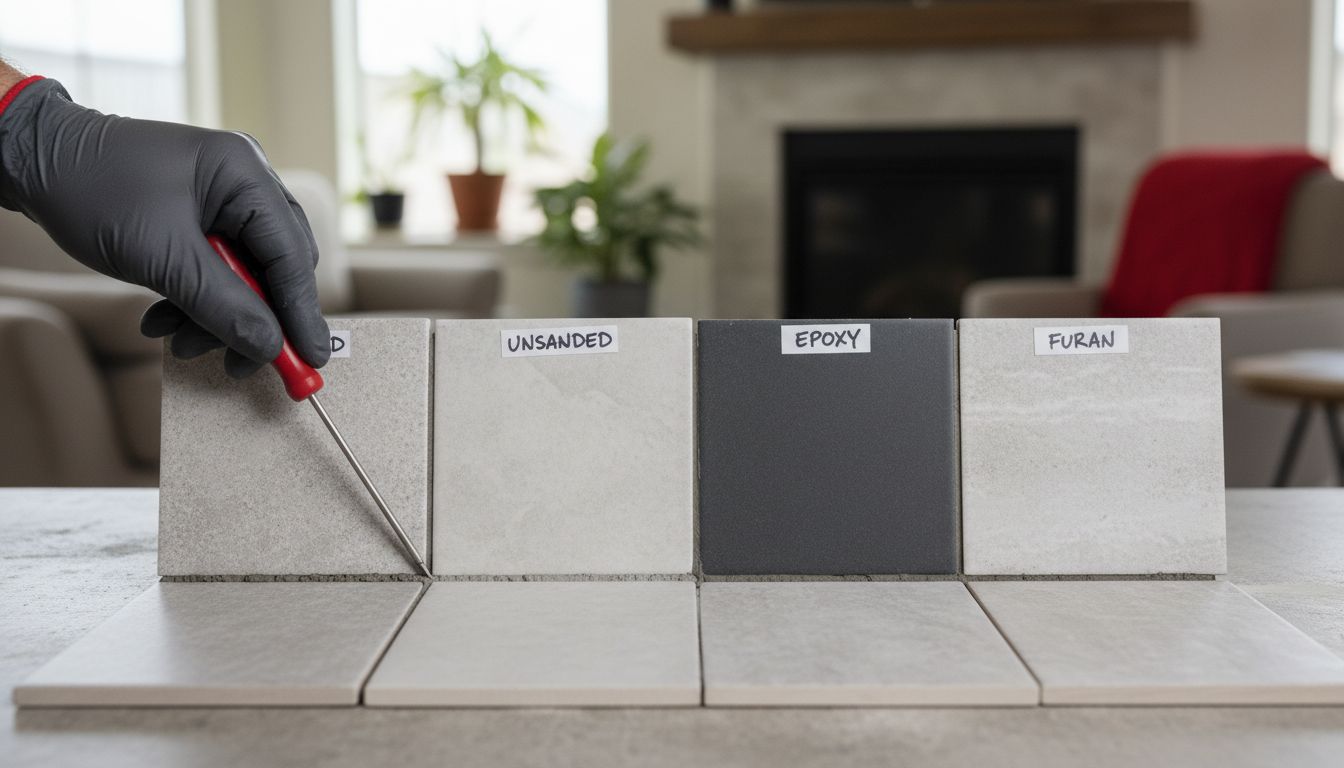
Here’s a comparison of the main types of grout and their recommended uses:
| Grout Type | Ideal Joint Width | Key Features | Common Applications |
|---|---|---|---|
| Sanded Grout | 1/8 inch or larger | Added strength Prevents cracking | Floor tiles Heavy traffic |
| Unsanded Grout | Less than 1/8 inch | Smooth finish For delicate tiles | Walls Glass Marble |
| Epoxy Grout | Any | Highly durable Resistant to stains | Kitchens Bathrooms |
| Furan Grout | Varies | Chemical resistant Industrial use | Factories Commercial |
Cleaning Methods And Equipment Explained
Professional tile and grout cleaning requires a systematic approach that goes beyond simple surface wiping. According to Clean Master Carpet Cleaning, the process involves several critical stages: initial inspection, targeted pre-treatment, detailed scrubbing, high-pressure steam cleaning, vacuum extraction, and optional protective grout sealing.
Tile and Stone Medic emphasizes that effective cleaning isn’t just about one-time deep cleaning, but also includes consistent maintenance and strategic preventative measures. This means regularly sealing grout lines and using appropriate cleaning solutions to minimize dirt accumulation and potential staining.
Key professional cleaning equipment typically includes:
- High-pressure steam cleaners
- Specialized rotary scrubbing machines
- Industrial-grade vacuum extraction systems
- pH-neutral cleaning solutions
- Grout restoration and sealing tools
The cleaning process often follows a structured methodology: First, professionals thoroughly inspect the tile and grout surface to identify specific challenges like stains, mold, or wear. Next, they apply targeted pre-treatment solutions to loosen embedded dirt and break down stubborn grime. High-pressure steam cleaning then penetrates deep into grout lines, dislodging contaminants that standard mopping can’t reach. Finally, powerful extraction equipment removes loosened dirt, leaving surfaces sanitized and refreshed. As a protective measure, many professionals recommend applying a specialized sealant to prevent future staining and extend the life of your tiled surfaces.
DIY Versus Professional Cleaning Services
Tile and grout cleaning presents homeowners with a critical decision between do-it-yourself approaches and professional services. According to Clean Master Carpet Cleaning, while DIY methods can manage surface-level cleaning, professional services provide a significantly deeper and more long-lasting clean through specialized equipment and advanced techniques.
Rapid Pro Clean emphasizes that everyday cleaning methods fall short of addressing the deeply embedded dirt within grout lines, making professional intervention essential for truly restoring tiled surfaces and maintaining optimal hygiene.
Key differences between DIY and professional cleaning include:
- Equipment Quality: Professionals use industrial-grade steam cleaners and extraction systems
- Cleaning Solutions: Specialized pH-balanced and targeted cleaning agents
- Expertise: Trained technicians understand different tile and grout material requirements
- Time Investment: Professional services complete thorough cleaning more efficiently
- Long-Term Results: Professional cleaning includes protective sealing and preventative treatments
While DIY cleaning can be cost-effective for routine maintenance, professional services offer comprehensive cleaning that extends the life of your tiles and grout. Homeowners should consider factors like tile material, room usage, and current condition when deciding between self-cleaning and professional intervention.
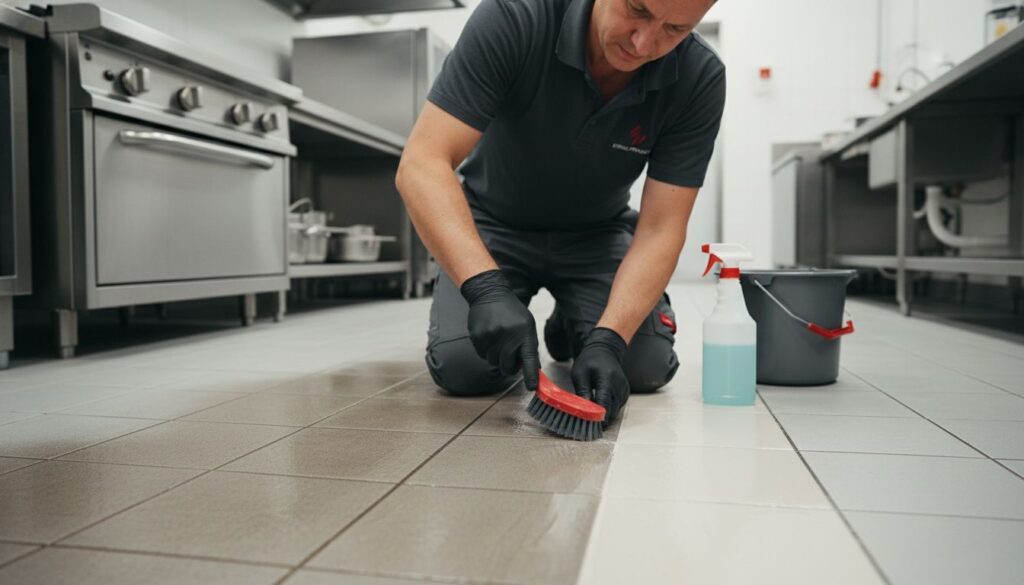
For grout and tile cleaning, local expertise can provide tailored solutions that address the unique challenges of your specific tile and grout surfaces.
Risks, Costs, And Maintenance Best Practices
Tile and grout maintenance involves understanding potential risks and implementing strategic preventative measures. According to Easy Clean Carpet Care, regular cleaning is crucial for preventing mold growth, maintaining indoor air quality, and extending the lifespan of tiled surfaces, ultimately reducing the likelihood of expensive repairs.
Tile and Stone Medic emphasizes the importance of periodic grout sealing to enhance protection against moisture, dirt, and potential staining, which can significantly reduce long-term maintenance needs and preserve the aesthetic appeal of your tiled surfaces.
Key maintenance risks and cost considerations include:
- Moisture Damage: Unaddressed water exposure can lead to mold, mildew, and structural deterioration
- Stain Penetration: Unsealed grout absorbs stains quickly, causing permanent discoloration
- Replacement Costs: Neglected tiles can require complete replacement, which is far more expensive than regular maintenance
- Health Risks: Dirty grout can harbor bacteria, allergens, and potentially harmful microorganisms
- Surface Degradation: Accumulated dirt and grime can gradually erode tile and grout surfaces
To minimize risks and control maintenance costs, homeowners should implement a proactive care strategy. This includes routine cleaning, annual professional deep cleaning, and applying protective sealants every 1-2 years. For comprehensive solutions tailored to your specific needs, special cleaning services in Massachusetts can provide expert guidance and professional maintenance that protects your investment and maintains your tiled surfaces in pristine condition.
Restore the Beauty and Hygiene of Your Tile Surfaces Today
Are stubborn grout stains and hidden dirt causing your tiled floors or walls to look dull and unhygienic? Professional tile and grout cleaning goes beyond simple scrubbing to remove deep-set grime, mold, and bacteria that can affect the longevity and health of your surfaces. If you want to protect your investment and enjoy a fresher, cleaner home or commercial space, our experienced team at Nu-England Services is here to help with specialized solutions tailored to your needs.
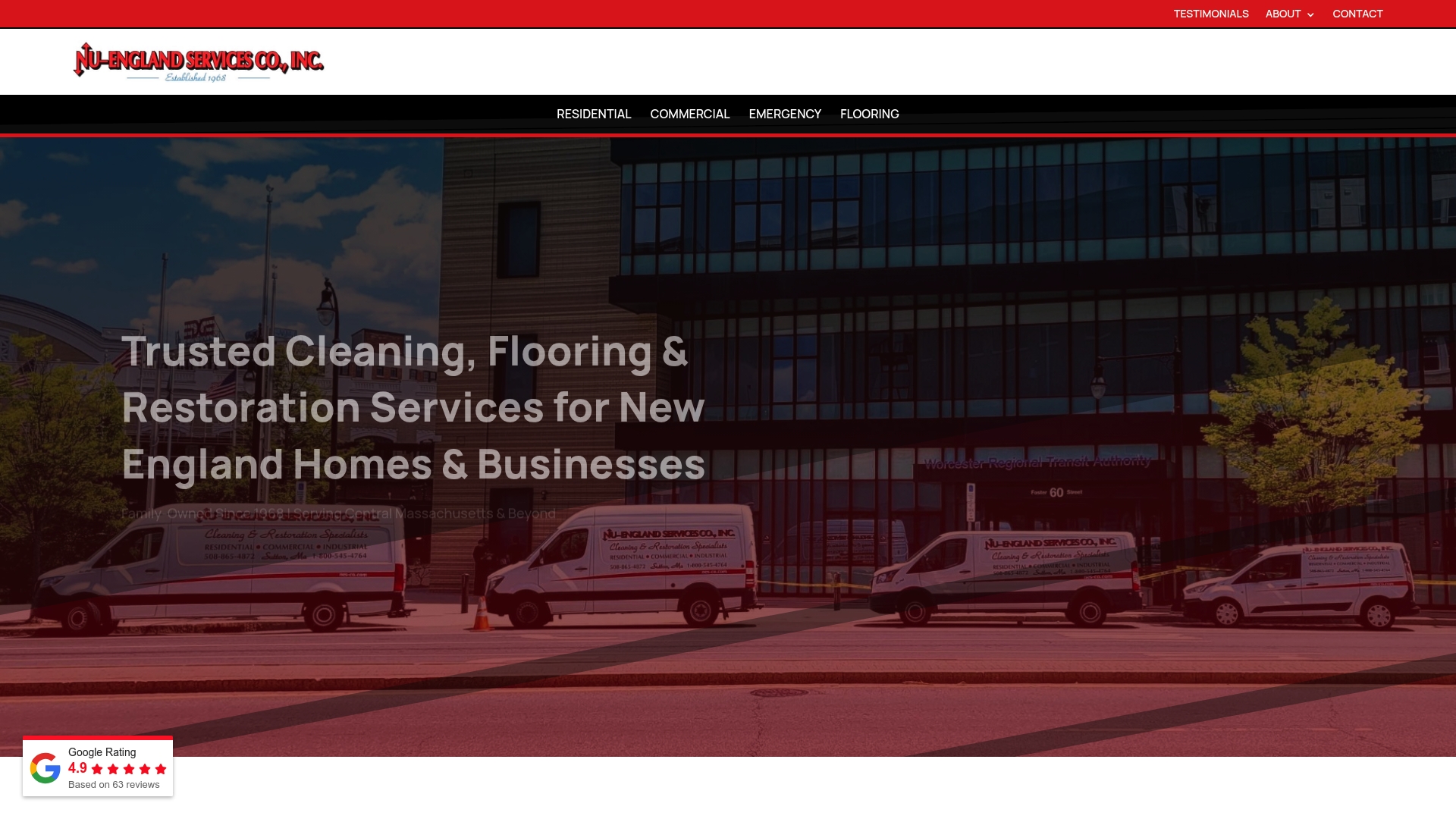
Discover the difference expert care can make by choosing our Special Cleaning Services for thorough tile and grout restoration. With decades of local experience, eco-conscious methods, and reliable results, we help you maintain beautiful, durable tile surfaces that feel like new. Visit https://nes-co.com now to request a free quote, or explore our other services like Carpet Cleaning to keep your entire home spotless and healthy. Don’t wait for stains and damage to worsen—take action today and enjoy lasting cleanliness and comfort.
Frequently Asked Questions
What is tile and grout cleaning?
Tile and grout cleaning is a specialized deep cleaning process that eliminates dirt, grime, mold, and stains from tiled surfaces and grout lines, restoring their appearance and hygiene.
What types of grout are available and how do I choose the right one?
The main types of grout are sanded, unsanded, epoxy, and furan grout. The choice depends on joint width, tile type, and the installation environment. Sanded grout is used for wider joints, while unsanded is best for delicate tiles.
What equipment is used in professional tile and grout cleaning?
Professional tile and grout cleaning typically involves high-pressure steam cleaners, rotary scrubbing machines, industrial-grade vacuum systems, and specialized pH-neutral cleaning solutions to effectively clean and restore surfaces.
How often should I have my tile and grout professionally cleaned?
It is recommended to have tile and grout professionally cleaned at least once a year, depending on usage and exposure to moisture. Regular maintenance can prevent stains and prolong the life of your tiled surfaces.

